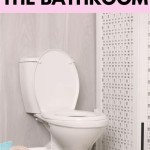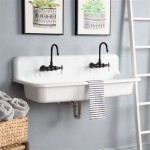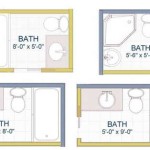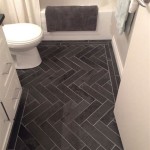The Postprandial Urgency: Understanding the Need to Go to the Bathroom After Eating
The human digestive system is a complex and fascinating network of organs working in concert to extract nutrients from ingested food and eliminate waste. While bowel habits vary significantly among individuals, a common experience is the urgent or frequent need to defecate shortly after eating, a phenomenon that can be perplexing and sometimes concerning. Understanding the underlying mechanisms that contribute to this postprandial urgency requires an examination of gastrointestinal physiology, dietary factors, and potential underlying medical conditions.
Several physiological processes are triggered when food enters the digestive tract. The initial phase, cephalic phase, involves physiological responses like saliva production and gastric acid secretion, even before food reaches the stomach. Once food enters the stomach, the gastric phase begins, characterized by further acid production, churning, and gradual emptying of the stomach contents into the small intestine. The intestinal phase involves further digestion and absorption in the small intestine, followed by the movement of undigested material into the large intestine, where water and electrolytes are absorbed, and waste products are compacted for eventual elimination.
The urge to defecate after eating is not always a sign of a problem. In many instances, it represents a normal physiological response. However, persistent or disruptive postprandial urgency can indicate an underlying issue warranting medical attention. Therefore, it is crucial to differentiate between normal bowel habits and potentially problematic patterns.
The Gastrocolic Reflex: A Key Driver of Postprandial Urgency
The gastrocolic reflex is a physiological response that increases colonic motility (muscle contractions of the colon) after food enters the stomach. This reflex is mediated by hormones, such as gastrin and cholecystokinin, released during digestion. These hormones stimulate the colon to contract, pushing existing stool towards the rectum and potentially triggering the urge to defecate. While the gastrocolic reflex is a normal part of digestion, its intensity can vary significantly among individuals.
The strength of the gastrocolic reflex is influenced by several factors, including the composition and size of the meal. High-fat meals, for example, can stimulate a more pronounced reflex due to their slower digestion rate and increased hormonal release. Similarly, larger meals can exert greater pressure on the stomach, further stimulating the reflex. Individual sensitivity to gastrointestinal hormones also plays a significant role. Some people are simply more responsive to these hormonal signals, leading to a more pronounced urge to defecate after eating.
Age can also affect the gastrocolic reflex. In infants, this reflex is particularly strong, leading to frequent bowel movements, especially after feeding. As individuals age, the intensity of the reflex may decrease, although this is not always the case. Certain medical conditions can also heighten the gastrocolic reflex, contributing to postprandial urgency.
Furthermore, lifestyle factors can influence the gastrocolic reflex and bowel habits. Regular physical activity can help regulate bowel movements, while sedentary lifestyles can contribute to constipation and irregular bowel habits. Stress and anxiety can also disrupt normal gastrointestinal function, potentially exacerbating postprandial urgency. Dietary habits, such as fiber intake and hydration levels, also play a critical role in maintaining healthy bowel function.
Dietary Factors Contributing to Postprandial Urgency
The composition of the diet significantly impacts bowel function and the likelihood of experiencing postprandial urgency. Certain foods and dietary patterns can either exacerbate or alleviate these symptoms. Understanding these dietary factors is crucial for managing bowel habits and addressing any underlying issues.
Fiber intake is a key determinant of bowel regularity. Fiber adds bulk to the stool, facilitating its passage through the colon. Insufficient fiber intake can lead to constipation and harder stools, while excessive fiber intake, especially if introduced abruptly, can cause gas, bloating, and increased frequency of bowel movements. A balanced fiber intake, including both soluble and insoluble fiber, is essential for optimal bowel health.
Certain foods can trigger or worsen postprandial urgency in susceptible individuals. These include caffeinated beverages, which can stimulate the colon and increase motility; artificial sweeteners, which some individuals find irritating to the digestive tract; and high-fat foods, which, as mentioned earlier, can stimulate a stronger gastrocolic reflex. Spicy foods can also irritate the gut lining, potentially leading to increased urgency.
Food intolerances and allergies can also play a role. Lactose intolerance, for example, can cause diarrhea, abdominal cramps, and urgency after consuming dairy products. Gluten intolerance or celiac disease can similarly lead to gastrointestinal symptoms after consuming gluten-containing foods. Identifying and avoiding trigger foods is crucial for managing these conditions and reducing postprandial urgency.
Hydration is another critical factor. Adequate water intake helps keep stools soft and easy to pass. Dehydration can lead to constipation and harder stools, making bowel movements more difficult and potentially contributing to a sense of urgency. Aiming for sufficient daily water intake is essential for maintaining healthy bowel function.
Processed foods, often high in refined carbohydrates and low in fiber, can also disrupt bowel regularity. These foods are often digested quickly, leading to rapid spikes in blood sugar levels and potential gastrointestinal discomfort. Choosing whole, unprocessed foods is generally recommended for optimal digestive health.
Underlying Medical Conditions Associated with Postprandial Urgency
While postprandial urgency can often be attributed to normal physiological responses or dietary factors, it can also be a symptom of an underlying medical condition. It is important to consider these potential underlying causes, especially if the urgency is persistent, severe, or accompanied by other concerning symptoms.
Irritable Bowel Syndrome (IBS) is a common functional gastrointestinal disorder characterized by abdominal pain, bloating, and altered bowel habits, including diarrhea, constipation, or a combination of both. Postprandial urgency is a frequent symptom of IBS, particularly the diarrhea-predominant subtype (IBS-D). The exact cause of IBS is unknown, but it is believed to involve a combination of factors, including altered gut motility, visceral hypersensitivity, and gut-brain interactions.
Inflammatory Bowel Disease (IBD), including Crohn's disease and ulcerative colitis, is a group of chronic inflammatory conditions affecting the gastrointestinal tract. IBD can cause inflammation, ulceration, and scarring of the bowel, leading to a variety of symptoms, including diarrhea, abdominal pain, rectal bleeding, and postprandial urgency. IBD requires medical management to control inflammation and prevent complications.
Lactose intolerance, as previously mentioned, can also cause postprandial urgency. Lactose is a sugar found in milk and dairy products. Individuals with lactose intolerance lack sufficient lactase, the enzyme needed to break down lactose in the small intestine. Undigested lactose ferments in the colon, leading to gas, bloating, diarrhea, and urgency.
Celiac disease is an autoimmune disorder triggered by the ingestion of gluten, a protein found in wheat, barley, and rye. In individuals with celiac disease, gluten triggers an immune response that damages the lining of the small intestine, leading to malabsorption and various gastrointestinal symptoms, including diarrhea, abdominal pain, and postprandial urgency.
Other potential medical conditions associated with postprandial urgency include microscopic colitis, which involves inflammation of the colon not visible during routine colonoscopy; bile acid malabsorption, which can occur after gallbladder removal or in association with certain intestinal diseases; and hyperthyroidism, which can increase gut motility. Certain medications can also cause diarrhea and urgency as a side effect.
In summary, the need to go to the bathroom after eating is a complex phenomenon influenced by a variety of factors. While often a normal physiological response driven by the gastrocolic reflex and dietary habits, it can also be a symptom of underlying medical conditions. Understanding these factors is crucial for managing bowel habits and seeking appropriate medical attention when necessary. Careful attention to diet, lifestyle, and any associated symptoms can help individuals identify and address the underlying causes of postprandial urgency and improve their overall gastrointestinal health.

Gastrocolic Reflex Going To The Bathroom After Eating With Ibd

Why You Have To Run The Bathroom After Eating Wellness By Food

Using The Bathroom Right After You Eat Is It Normal Mycrohnsandcolitisteam

Gastrocolic Reflex Why Do I Have To Poop Right After Eat Goodrx
.webp?strip=all)
Doctor Reveals Why You Need To Go The Toilet Immediately After Eating Life Tyla
Why Do I Need To Go The Restroom Immediately After Eating Quora

Why Do I Need To Rush The Bathroom After A Meal Blue Tree Nutrition Greater Carmel Na
:max_bytes(150000):strip_icc()/diarrhea-after-eating-1944811-01-5bc5fa3446e0fb0026c414bf.png?strip=all)
Diarrhea After Eating Causes And Treatments

Gastrocolic Reflex Going To The Bathroom After Eating With Ibd

Gastrocolic Reflex Why Do I Have To Poop Right After Eat Goodrx







